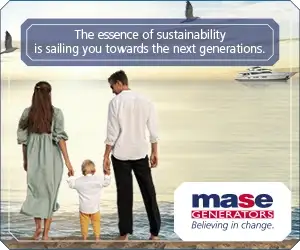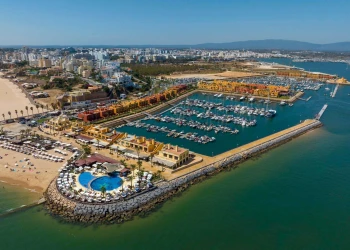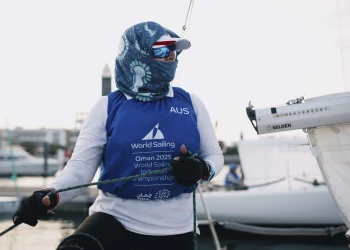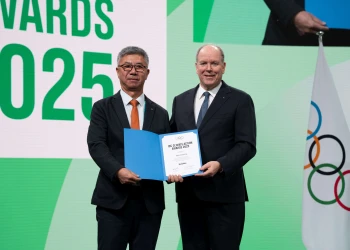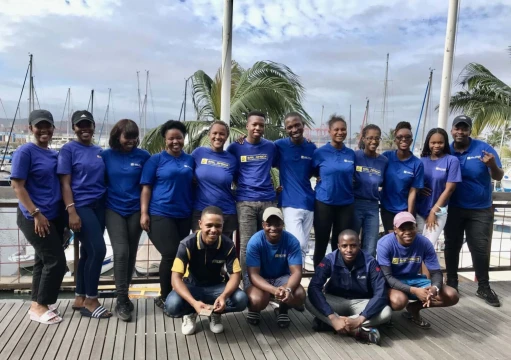
11th Hour Racing Sustainability Award 2022, spotlight on Sail Africa
11th Hour Racing Sustainability Award 2022, spotlight on Sail Africa
Nowhere has the full range and full potential of a sustainable project been evident than in Durban, South Africa, where the Sail Africa Youth Development Foundation have introduced a new generation to sailing while also easing inequality by creating new opportunities for girls and children from the townships.
Jackie de Fin, the foundation’s Managing Director, a former High School teacher and University lecturer specialising in Geography, knew Sail Africa itself had to be sustainable and doubled as a life skills initiative, ensuring positive sustainable outcomes around alleviating poverty, reducing inequality, developing education and creating environmental awareness in order to address just some of the issues facing youth growing up in the city.
Sail Africa won the Ethekwini Maritime Cluster Award for Empowering Youth in 2017 and won the World Sailing 11th Hour Racing Sustainability Award in 2021. The foundation was profiled as part of Steering the Course, World Sailing’s global women’s sailing festival, in 2021. Each year, participation of ethnically diverse and female sailors has increased, as has the frequency of podium positions achieved.
What does sustainability mean to you?
Sustainability has many facets and in my work with Sail Africa I have come to appreciate them all. I will focus on three:
Sail Africa itself had to be sustainable. We needed a business model that would enable us to survive. There is not an endless supply of money and none of our youngsters pay. After a few years we realised that sailing would not bring us the sustainability we sought and with my background in education we made maritime education our focus. This brought funding but more importantly it brought government recognition for the role sailing can play in maritime education and attract sponsors.
In a country like South Africa where the cultural differences are so enormous, sustainability to me meant easing inequality. In our small way we can offer the opportunity to get out on to the water and enrich the lives of the youth. In addition, through sailing we have been able to build partnerships with organisations offering bursaries to our youth, trips overseas to sail and visit maritime organisations, as well as public speaking opportunities when we get to go to business fairs.

The BEST example of this is a young township boy who joined us aged 13 and who in December was an officer on the S. A. Agulhas, an ice-strengthened training ship and former polar research vessel, and better yet, drove the rubber duck to service the scientists who discovered Shackleton’s Endeavour because he held a safety boat licence earned while training to be an instructor with us. How cool is that!
Our girls’ programme has been another great example. We felt that access to the sport in Durban was highly restricted, and we wanted to prove to the girls that they could be just as good as any male. Imagine how liberating it is when they race against them and win!
Lastly, sustainability means environmental sustainability, and it really cannot be underestimated just how important this is. Can the oceans continue to offer us life, will the atmosphere be affected and heat up any more? Will the small layer of soil be preserved to support future generations, and in a water-stressed country when will D-Day be?

How did you get interested in sustainability?
I taught geography in high schools and universities before taking up Sail Africa and before it grew to occupy me full-time in my semi-retirement, so I have taught sustainability and also thoroughly researched the topic to write school textbooks on the subject.
Social sustainability, which is what our focus in Sail Africa is, interested me as a youth watching the Soweto riots and feeling for the kids at the time. I don’t think anyone wakes up and says I am going to change the world; they fall into a situation as I did with Sail Africa and see a way to make a difference little by little. It is an example of the old adage ‘think global, act local’; if everyone did that how much more sustainable would the world be?
What are you most proud of in terms of your work on sustainability?
I am most proud when I see some of the kids we have had doing well. When they pass an exam, the first place they run to is us to tell us; when they get a job in the real world and they come back to say thanks, or send a message out of the blue to tell me thanks – sometimes we don’t even know we have had an impact until something like this happens. If we have made it easier for one young person, we have made a difference, and that is rewarding and what I am most proud of.
I am proud, too, that the organisation is sustainable, not only financially – for the next few years – but that it has a life now of its own. We recently held our first ‘away’ programme in a town 170kms away, and soon there will be another in Gqeberha, some 400kms away. I have a team of instructors who, if things go according to plan, will be able to go to other clubs and train our programmes there. Sail Africa’s philosophies and programmes will live on in other centres after I and Nigel Milln, our CEO, retire, and that will make it sustainable.
What has been the most difficult challenge that you have overcome?
There is always resistance to change and Sail Africa has brought just that! Durban is a city that in my lifetime has changed from being colonially gentrified to being an African city with all the life, vibrancy and challenges that entails. If sailing is to survive in Durban, it had to change too. Craig Millar, our founder, recognised this first and we began changes way back in 2008. Fortunately, winning the World Sailing 11th Hour Racing Sustainability Award has validated us in a way we never would have thought possible, we can put the struggles behind us and work for the good of our country and sailing.
What would be your advice to those in sailing or anyone who wants to help?
Anyone who wants to help in any way, whether it be to ensure a clean environment, to improve social sustainability, or anything else: start small, but start. Don’t be daunted because it is so overwhelming, just start. Once you start, don’t stop if you believe in what you are doing. If you genuinely believe it will slowly grow and what you are doing will make a difference.

